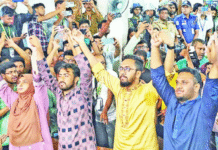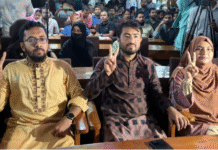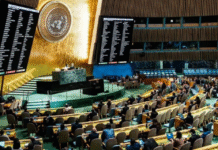The Daily Star December 10, 2018 P

The exorbitant cost of running for parliament is keeping many honest and qualified candidates from contesting, said an economist yesterday.
Debapriya Bhattacharya, a distinguished fellow of the Centre for Policy Dialogue (CPD), said, “We have said elections in many cases have turned into a major investment.”
So, many honest and qualified candidates cannot take part in the polls due to high expenditure, he said.
“Time has come to see whether election expenses have turned into a major obstacle to democracy,” he said while speaking at a programme at the Brac Centre Inn in the capital.
At the programme, the CPD unveiled its annual report on the Bangladesh economy.
In the past, the think tank had called for adjusting electoral expenses through state expenditure and bringing more transparency during polls-time expenditure.
But nobody verifies the authenticity of declared election expenses and it is not clear whether the Election Commission has the interest and the capacity to do so, said Debapriya.
He said potential candidates submitted their affidavits on their income and wealth, but this had remained as a formality as nobody took initiatives to verify those.
The EC may not have the capacity, but it should interest the National Board of Revenue (NBR), he said.
“Two weeks ago, we had said the NBR could verify the wealth statements as soon as they were submitted and give a summary report.”
The economist said large borrowers who are contesting the election had long ago had their bank loans regularised using influence and other connections.
The EC is a constitutional body and for it to function properly, other regulators such as the NBR, the Anti-Corruption Commission, and the central bank should have worked in sync, but such coordination was not there, he added.
“There is no political initiative to address the administrative inaction. Had there been political initiative, the administration would have been more active.”
Debapriya said the country had developed, but the poor people had not got their fair share of benefit of the progress because of a lack of political competition and a dwindling capacity of agencies responsible for protecting public interests.









